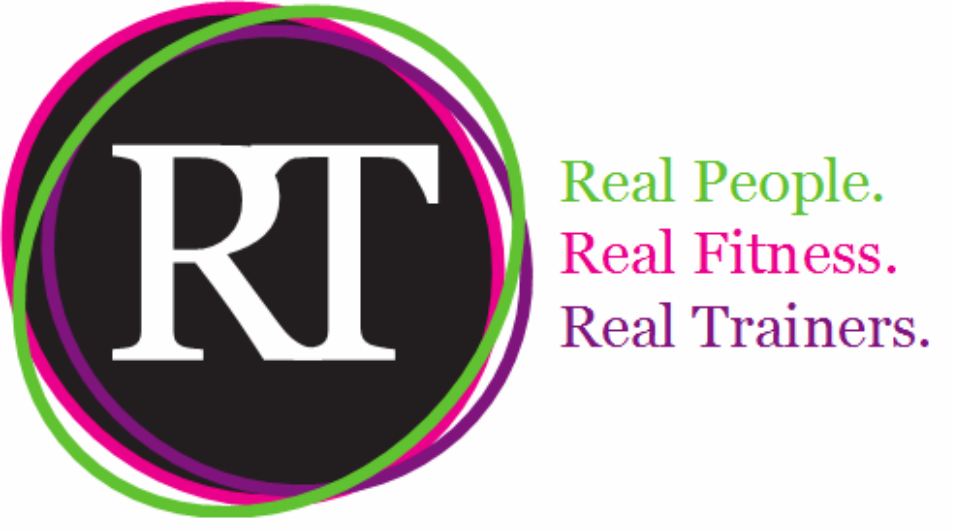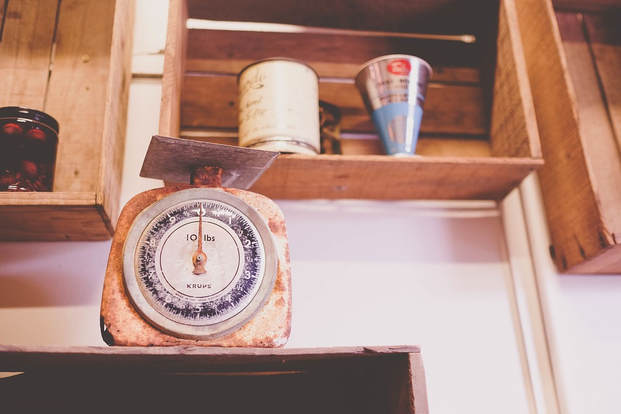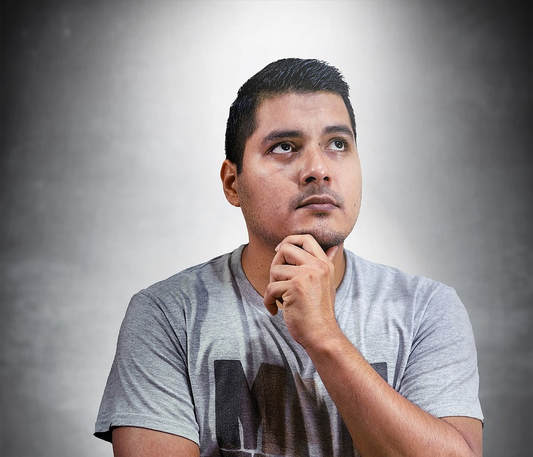|
Everywhere you look, everywhere you go, people are trying to sell you things. “This will make your life easier! How have you even lived this long without it?!” This message permeates our culture, but the kitchenware industry has got to be one of the worst offenders. A tool specifically meant for chopping garlic? Another one for slicing avocado? Even more for peeling apples, slicing eggs, coring pineapple, peeling onions, hulling strawberries, juicing oranges, deboning fish, seeding tomatoes, mixing, dicing, crushing, blending, etc? I’ll admit that I’ve become a bit grumpy about these specialty items, even though some of that stuff is great. Some of it is actually useful and will really save you time, but a lot of it can be replaced with a cutting board and a good knife. This grumpiness is why, for a long time, I didn't exactly consider a kitchen scale to be an essential piece of equipment. This post is about why I was wrong. This is a fitness blog, and I'll get to that in a moment, but I ought to mention that not every scale in every kitchen is used by someone making changes to their diet. If I had to guess, I'd say that most aren't. With flour, do you dip your measuring cup into the bag, or do you use a spoon to fill a measuring cup before dumping it into the bowl? Is 1 cup of flour meant to be packed, scooped, sifted, etc? Isn’t there an easier way to get the perfect amount of flour and make the perfect cookie?! While you might not lay awake at night thinking about the perfect cup of flour, a scale is an indispensable tool for anyone who wants accurate measurements of flour, sugar, or other dry ingredients. Proper measurement means better baking, and I can use all the help I can get in that department. Even better is the idea of not having to wash a sink-load of measuring cups. Now that you’re all set to use your kitchen scale to make better cupcakes, let’s take a look at how we can use it to undo the effects of those cupcakes. “How Will a Scale Help Me?” One of the first steps to making dietary changes is to keep a food log; you can’t know what you need to change until you know what you’ve been eating. Keeping a log is about discipline and honesty, but it’s also about accuracy. Inaccurate reporting is the most common way that we undermine an otherwise complete food journal, and a scale takes the guesswork out of it. Here’s what I mean: According to the package, a serving of dry pasta is 85g and provides 300 calories. Do you know what that serving looks like? Do you know what it looks like once it's cooked? I thought I did, and it turns out I was way off. The implications of this when you are logging your food can be huge: If you thought that you had one serving of pasta for 300 calories, but really you had 2 servings for 600… you get the idea. “But isn't it tedious to weigh your food all the time?” I actually find it kinda fun to see what 100g of different food looks like, but I won't lie, it can be tedious at first. It's an extra step when you're prepping food, which can be a deterrent for those of us on a tight schedule. That said, it’s an important step in getting an idea of what you're eating, which makes it worth the extra effort. Since you likely eat a lot of the same things from one week to the next, you probably aren’t signing up for a lifetime of weighing or measuring every ingredient of every meal. 100g of chicken breast? ½ cup of rice? One serving of broccoli? It won’t take long for you to know what that looks like on your plate. It’s also important to note that using a scale might be the easier of two options. If you’re going to have some tortilla chips, you can either count out 40 chips or put a bowl on the scale and dump them in until you’ve got 50g. Once you’ve done that a few times you’ll have a good idea of what “one serving” looks like, and you’ll be able to skip the scale altogether. “Alright I’m convinced. But how do I decide which scale to get?” The easy answer for me to give would be “If you’re even using a scale, you’re stepping up your game, so it doesn’t matter!” That may even be true, but I know it isn’t that helpful. The old-school analog scales really are fine, if all you need to do is weigh moderate amounts of food and you aren’t overly concerned with accuracy. If you already have one of these then go ahead and use it. If you don’t have one yet, I suggest getting a digital scale. These allow you to measure small amounts of ingredients (again, useful when baking), but the key feature of many digital scales is the Zero/Tare feature. With an analog version, you put your plate on the scale, then your bagel. The difference in weight is how much your bagel weighs. Next, you put peanut butter on your bagel and do more math to find out how much of that you’ve used. With the Zero/Tare function, you put your plate on the scale and hit “zero,” which resets the display to zero. Now when you put your bagel on the plate, it will just tell you how much it weighs! Hit “zero” again, add your peanut butter, and record the amount shown. But wait! It gets even easier! Instead of having your plate on the scale, put the jar on there and hit “zero.” When you take some peanut butter out and spread it on your bagel the scale will read “-10g,” and you can easily get the exact amount you want. This is way easier than subtracting with an analog scale, and way easier than putting a bit on your bagel, taking some off, getting a bit more, etc. Removing barriers and excuses can be the key to actually making the positive changes you want to make, so the extra flexibility, ease of use, and increased accuracy of a digital scale make it the right choice for anyone who’s reading this and thinking “this all sounds like a lot of work.” Anything worth doing is worth doing right, and that means using the right tool for the job. Upping your food-logging game with a kitchen scale isn’t going to change your life overnight. What it is going to do is take away the guesswork and give you greater control over what you’re eating, and that is the foundation for successfully making changes to your diet.
0 Comments
Recently, I’ve been thinking a lot about mindset and the role it plays when we attempt to make changes in our lives. This isn’t some fresh idea or epiphany, and it’s a topic I’ve touched on before, but it does seem to come up all the time when I speak with clients, colleagues, and friends. Fitness is about changing the body, but it just isn’t as simple as “work hard, see results” or “eat better, lose weight.” If it was, I wouldn’t have this blog, and I might even be out of a job altogether. We are often our own worst enemy and our own biggest obstacle, but why? What is it that prevents us from working as hard as we need to work, from sticking to our dietary changes, and ultimately, from reaching our goals? The short-and-maybe-not-so-helpful answer is that it’s all in our minds (I wasn’t kidding about it not being helpful). For a longer-and-hopefully-more-enlightening explanation, read on. As we go about our day and take in information, we think about it, apply it to ourselves, and make decisions. With so much going on around us, our brain uses little tricks to speed up the process, so we are subject to these hidden little things called Logical Fallacies, Cognitive Biases, and Heuristics. In plain English, we have mental shortcuts that run in the background of our thought-processes, and they allow us to act & think quickly and to make decisions that are usually correct, though they sometimes result in faulty reasoning. I am not an expert on this topic, but I find it fascinating. If you’d like to follow me down the rabbit hole you can read more by following the links throughout this post, but in the meantime I thought I would take a look at some of the more common mental traps we fall into when we talk and think about fitness. In each case I give a formal name, an example, and a discussion about the potential danger. Agumentum ad Populum – The argument that if something is popular, it must be good. You may have learned this one when you were a kid and you really wanted something because all your friends had it, or because “Jimmy’s mom lets him do it!” Say it with me: If Jimmy jumped off a bridge, would you do it too? Plenty of people run as part of their workout program, but not me. I have asthma, my ankles get really sore, and I just plain don’t enjoy it. It works for thousands of people, but that doesn’t mean it’s right for me. A good fitness program needs to be effective, safe, and fun, and if I relied on running as a primary component of my fitness regimen, it would be none of those. An even better example is fad diets and exercise crazes. The fact that x-amount of people buy into the idea of detoxing through diets, cleanses, colonics, etc does nothing to legitimize the idea that detoxing is a good idea. The fact that x-amount of people who don’t have celiac disease have lost weight after going gluten-free does not indicate that gluten is bad for you. Each claim must stand on its own merit, and the efficacy of the product/diet/habit in question must be evaluated based on a complete understanding of what’s going on. If you lose weight after going gluten-free and cutting bread, pasta, and other processed carbohydrates out of your diet, is that be because of the lack of gluten? Is it more likely that you were over-consuming those products and have now reduced your daily caloric intake? More importantly, each claim must be evaluated as it fits in with your lifestyle and goals. You are an individual, and what’s good for one person may not be good for you, even if it’s actually good to begin with. Appeal to Authority - This implies that because an expert says something, it must be true. There are plenty of ways this can go wrong: some experts are self-described, some use expertise in one field to give themselves credibility in another, some are only out to make a buck, and sometimes they're just wrong. Of course, experts are often correct when they say things, but it's up to us to dig deeper and find out if they're reliable, if the information is backed up by solid research, and if there are any valid criticisms to the claim they're making. This is exploited by people who make “documentaries” that aren’t documentaries at all. When someone appears on screen wearing a lab coat we are more likely to accept the things they say, even if that “doctor” is saying something that’s based on faulty research or isn’t based on scientific evidence at all. "[TV Doctor] says we need to eat 4 cups of goji berries a day, do you know where I can buy those?" That seems like a lot of goji berries, and didn't he say yesterday that you had to eat 8 cups of rhubarb a day? When/why am I supposed to eat all of this? “[TV Personality] says that no woman should ever lift more than 3lbs, so I guess it’s time to ditch the heavy lifting.” Yes, this is a real claim by a real person, and it is a perpetuation of the myth that lifting heavy weights will make you bulky. This statement implies that no woman should ever lift her own baby, or carry her own suitcase, or work in a physically demanding job. It also implies that female athletes, body builders, fitness models, etc must not have to work very hard to develop muscle mass. These insinuations are misleading, insulting, and false. A variation of this is the Appeal to Anonymous Authority. "They say you have to work out 3 times a day to see results." Who are "they," anyway? Surely we need a better source before we take action. Confirmation Bias - This is our tendency to accept information/evidence as true when it conforms to beliefs we already hold. Also referred to as Cherry-Picking, it allows us to justify holding unfounded positions because we can point to supporting info while we ignore/deny that which refutes it. Here's an example from my personal life. I am not a big fan of doing core training. Don't get me wrong, I get all my clients to do it, but I personally don't like doing it (probably because I need to strengthen my core). While searching online for some info about core training, I learned something amazing: many body builders spend very little time on core-specific exercises! Well that's all I needed to hear, I could put my gruelling core circuit on the back burner, maybe never do it again, right? Good enough for body builders is good enough for me! Hopefully you've noticed the obvious flaw in my reasoning... I am not a body builder. My goals include overall functional strength, not washboard abs that win competitions. Also, your core will certainly get strong if you do that type of training, alter your diet, spend a lot of time & effort to pack on muscle, perfect your form, etc, but I don't do that type of training. None of that applies to me, so neither can the argument. Here's another example: have you ever heard someone say "I may be considered overweight based on BMI, but BMI is a flawed statistic, so who cares?" If you're willing to simply throw out a statistic that gives you a result you don't like, you're experiencing a classic case of confirmation bias. For clarification, Body Mass Index is, by its very nature, an incomplete stat that is more useful for discussing populations than individuals. It doesn't take body composition into consideration; you could lower you BMI considerably by having your arms amputated. At the same time, when things like heart disease, diabetes, arthritis, etc can be linked to increased BMI, it's worth finding out if you fall under the category of "exception" or "rule." Again, just because a body builder has a BMI of 32, that doesn't mean that someone else will be healthy with the same number. Cognitive Dissonance – This describes our ability to simultaneously hold two or more contradictory ideas, beliefs, or values. I find this one to be particularly interesting because while we can be really good at seeing Cognitive Dissonance in other people, we can be completely oblivious when it comes to ourselves. If you or someone you know has ever complained about not getting results while at the same time skipping workouts or eating unhealthy food, you have experienced this phenomenon. A few more quick examples. A person is exhibiting Cognitive Dissonance when they: • Drink coffee at 6pm then wonder why they can’t sleep • Spend money on frivolous things and then complain about being broke • Avoid exercises they don’t like because they’re too difficult, knowing that doing more of that exercise will make it easier and make them hate it less You get the idea. This isn’t always on purpose. The issue is often that the speaker simply hasn’t thought about how the two thoughts are linked. They aren’t being stupid or intentionally missing the connection, it just hasn’t occurred to them. Cognitive Dissonance is more common than you think, and I’ll bet you can think of an example from your own life. “Ok, but why are telling me all of this?” In case you aren’t finding this as interesting or compelling as I do, allow me one last attempt to stress the importance of this: Just like it’s tough to make changes to our diet without understanding how our body uses food, it’s tough to make changes to our mindset unless we have an idea of what’s going on up there. Understanding how our minds work and how they can play tricks on us is a crucial part of any sort of self-reflection or self-improvement, and the areas of health, fitness, and weight-loss are no exception. You don’t need to be an expert in psychology, either. Avoiding the mental traps I’ve described above (and knowing that there are many more that I haven’t mentioned) may be as easy as taking an extra moment when you hear a claim, or think about skipping your workout, or tell a friend about some diet you saw on TV. In that extra moment, ask yourself an extra question, something like, “Is this really how I feel? Is this in line with my goals? Do the claims about this product/diet match what I know to be true about how the body works?” Break the habit of placing blind trust in your brain and build a new habit of making sure you really think what you thought you thought. |
AuthorRyan Casselman is a personal trainer, musician, and the founder of Real Trainers. Stay tuned as he finds out what he's going to write about each week or so! Archives
November 2017
Categories |
Proudly powered by Weebly



 RSS Feed
RSS Feed